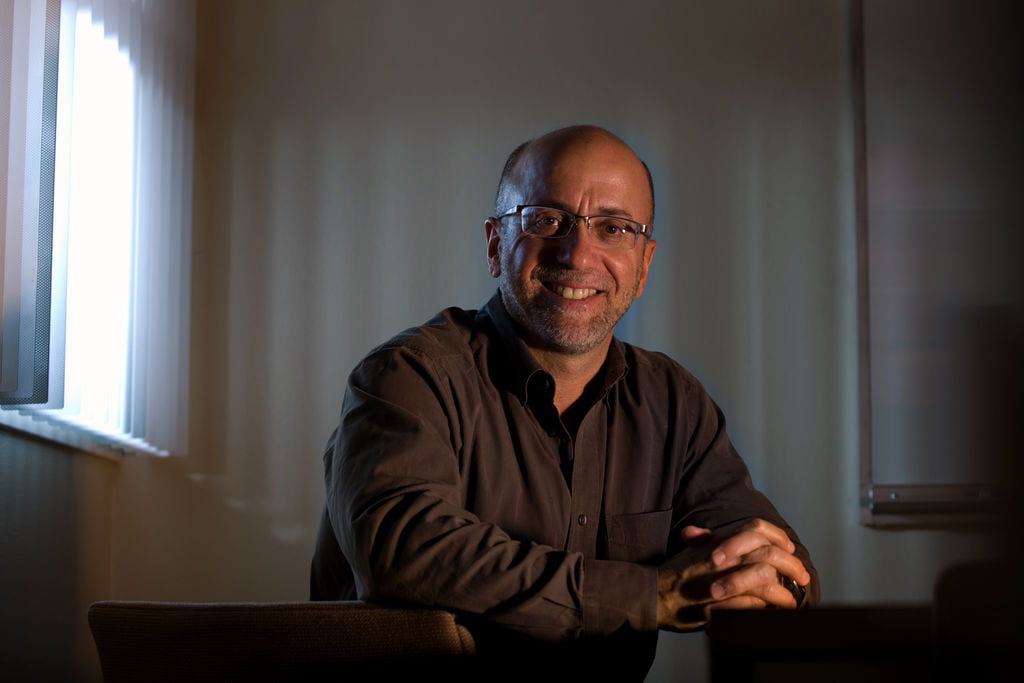UCI launches research institute devoted to effectiveness of antipoverty programs
Studies will explore long-term success of policies promoting economic self-sufficiency

Irvine, Calif., Feb. 25, 2016 — Research on the long-term effectiveness of poverty alleviation programs in the U.S. is the focus of a new, $1.3 million institute at the University of California, Irvine. Launched Jan. 1, the Economic Self-Sufficiency Policy Research Institute is led by Chancellor’s Professor of Economics David Neumark, who has directed UCI’s Center for Economics & Public Policy since 2011.
“Spending on programs and policies to reduce poverty and increase economic self-sufficiency is significant – easily over $100 billion per year,” Neumark said. “There’s lack of evidence on the long-term effects of these programs and policies. We know a lot about who gets what in the short term but very little about whether these programs enhance the ability of individuals and families to become economically self-sufficient in the longer term.”
The new center aims to fill this research gap through targeted studies in major policy areas that influence economic self-sufficiency. These include minimum wages, the earned income tax credit and local economic development incentives – subjects in which Neumark is a widely cited expert – as well as other topics to be pursued by affiliated faculty from UCI and across the country.
“This research agenda is intended to change the conversation from the short-run redistributional impacts of these policies to their long-run effects,” he said. “A specific focus will be on whether these programs enable people to benefit from government assistance in the short term and to become economically self-sufficient in the long term.”
In 2017, the Economic Self-Sufficiency Policy Research Institute will launch a national grant competition to fund as many as four projects focused on poverty alleviation policies that promote economic self-sufficiency. It will translate completed research on income, work and self-sufficiency into impact reports that will be deployed through targeted op-eds; briefings for policymakers, legislative committees and other government bodies; and a social media campaign intended to give the digestible information its widest reach.
“ESSPRI ultimately seeks to improve policies designed to make individuals economically self-sufficient,” Neumark said. “By studying the long-term effectiveness of these programs, we can begin to find ways to improve policy to further policy success.”
The Center for Economics & Public Policy and its successful model of policy-oriented research will be absorbed into the new institute, which was funded by the Laura & John Arnold Foundation. Learn more about the Economic Self-Sufficiency Policy Research Institute and its work online at www.esspri.uci.edu.
About the University of California, Irvine: Currently celebrating its 50th anniversary, UCI is the youngest member of the prestigious Association of American Universities. The campus has produced three Nobel laureates and is known for its academic achievement, premier research, innovation and anteater mascot. Led by Chancellor Howard Gillman, UCI has more than 30,000 students and offers 192 degree programs. It’s located in one of the world’s safest and most economically vibrant communities and is Orange County’s second-largest employer, contributing $4.8 billion annually to the local economy. For more on UCI, visit www.uci.edu.
Media access: Radio programs/stations may, for a fee, use an on-campus ISDN line to interview UC Irvine faculty and experts, subject to availability and university approval. For more UC Irvine news, visit wp.communications.uci.edu. Additional resources for journalists may be found at communications.uci.edu/for-journalists.